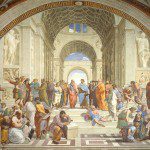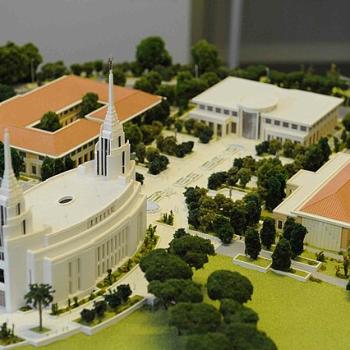
(Wikimedia Commons public domain)
Not exactly a cross section of humanity or a representative of the typical human.
There are those — some of them read my blog — who appear to argue that science is the only valid kind of knowledge, and that anything that isn’t scientific isn’t really knowledge.
I find such claims — if that’s indeed what they’re really saying — unspeakably weird and obviously false.
I offer, below, a comment on the subject from the great German philosopher Hans-Georg Gadamer (1900-2002; yes, you read that right). It’s perhaps just a bit difficult, but his point seems to me unassailably sound to the point of obviousness.
The physical and natural sciences study particular cases in order to generalize rules from those particular cases — replicability being an important aspect of sound work in such sciences as chemistry and physics, though rather less so (or, anyway, differently so) in areas like cosmology, geology, and paleontology. Evolutionary biologists aren’t typically enamored of this or that individual fruit fly; ichthyologists don’t usually try to write biographies of individual groupers or jellyfish; wildlife biologists don’t often devote their careers to a particular elk; no botanist has focused his life’s work on an individual shrub.
By contrast, historians can spend, and have spent, entire careers on the life and times of Andrew Jackson, on the late Byzantine empire, on the Umayyad Dynasty, on the biography of Napoleon, and on the Tokugawa shogunate. And they’ve done so not so much in order to formulate predictive general theories — in the style of biochemistry or particle physics — about the American presidency, the rise of dynasties or the collapse of states, or the life-cycle of famous Corsicans, as because they wanted to understand those people or those periods in and of themselves.
That’s what Gadamer is getting at in this passage. History, he insists, is very different from the natural or physical sciences and, even, from “social sciences” like anthropology, sociology, and psychology:
But the specific problem that the human sciences present to thought is that one has not rightly grasped their nature if one measures them by the yardstick of a progressive knowledge of regularity. The experience of the sociohistorical world cannot be raised to a science by the inductive procedure of the natural sciences. Whatever “science” may mean here, and even if all historical knowledge includes the application of experiential universals to the particular object of investigation, historical research does not endeavor to grasp the concrete phenomenon as an instance of a universal rule. The individual case does not serve only to confirm a law from which practical predictions can be made. Its ideal is rather to understand the phenomenon itself in its unique and historical concreteness. However much experiential universals are involved, the aim is not to confirm and extend these universalized experiences in order to attain knowledge of a law — e.g., how men, peoples, and states evolve — but to understand how this man, this people, or this state is what it has become or, more generally, how it happened that it is so.
Hans-Georg Gadamer, Truth and Method, 2d ed., rev., translation by Joel Weinsheimer and Donald G. Marshall (London and New York: Continuum, 2004), 4.
It is extraordinarily odd, though — or, at least, so it seems to me — to claim that historical knowledge isn’t really knowledge.












